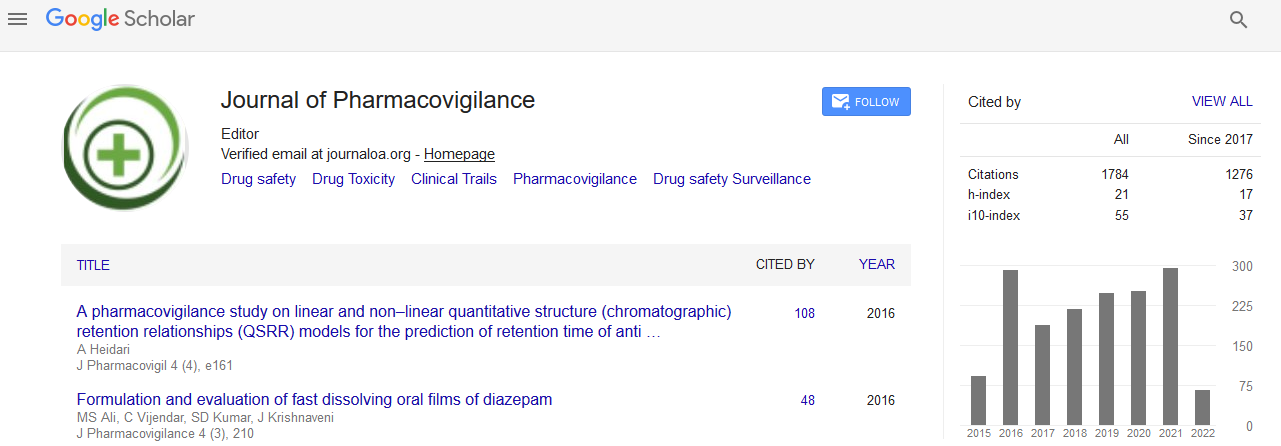Indexed In
- Open J Gate
- JournalTOCs
- The Global Impact Factor (GIF)
- RefSeek
- Hamdard University
- EBSCO A-Z
- OCLC- WorldCat
- Publons
- Euro Pub
- Google Scholar
Useful Links
Share This Page
Journal Flyer

Open Access Journals
- Agri and Aquaculture
- Biochemistry
- Bioinformatics & Systems Biology
- Business & Management
- Chemistry
- Clinical Sciences
- Engineering
- Food & Nutrition
- General Science
- Genetics & Molecular Biology
- Immunology & Microbiology
- Medical Sciences
- Neuroscience & Psychology
- Nursing & Health Care
- Pharmaceutical Sciences
Interaction associated to ADR database (InAADR): An adverse drug reactions resource for drug, food and protein interactions
9th International Conference and Exhibition on Pharmacovigilance & Drug Safety
July 17-18, 2017 Munich, Germany
Prabha Garg
National Institute of Pharmaceutical Education and Research, India
Posters & Accepted Abstracts: J Pharmacovigil
Abstract:
ADRs (adverse drug reactions) are one of the most common causes of death worldwide. Numerous incidents are reported every year, ADRs affecting community people. A huge amount of ADRs data are present in raw format and scatter in different resources. Handling and analysis of molecular data is still complicated and unmanageable even for experts also. ADRs mainly occur due to the interaction of the drug with single/multiple proteins present in the body. The consequence is that a given protein target binds many drugs or their metabolites, and conversely, a drugs or metabolites bind many proteins, all with similar active sites. This binding causes beneficial and unwanted effects. Similarly, after administration of the drug in the body, it may bind to the co-administered drug, food or can be converted into toxic metabolite which causes ADRs. Several literatures have been reported so far, for the incidence of ADRs in patients during hospitalization or due to self-medication. This information is dumped in raw format. Here, we present, the InAADR (interaction associated to ADR) database, to get access to such information to common people easily in a user-friendly interface. InAADR is a publicly available compilation of chemical-food-metabolite-protein-toxicity resources that enables the study of toxicology of a small molecule across multiple layers of complexity from molecular to clinical levels. InAADR provides protein targets of drugs, and their associated side effects. Various customizable options are available for searching information across the database.
Biography :
Email: prabhagarg@niper.ac.in


